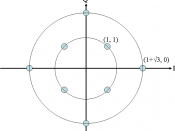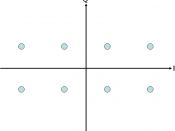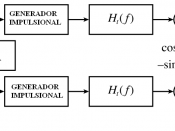1 |
6 |
Telecommunications is a term used to describe any type of long distance communication techniques. In the digital age, telecommunications describes the use of electronic devices that facilitate communications between people, computers, and other machines. There are several technologies used today that enable these communications and allow them to perform efficiently. The basis behind these technologies is the process of converting analog signals, or signals that can have an infinite number of values that encapsulates the data stream, to digital signals, signals that generally can only have a value of zero or one, and digital signals to analog signals.
There are many different devices in use that convert the different signal types and transmit the data. Some of the devices are used to facilitate longer distance communications and others are used to allow short distance communications.
An example of the digital-to-analog conversion process is the use of a data modem to convert the digital signals that a computer generates to an analog signal that can be transmitted over the twisted pair telephone lines. This is also an example of analog-to-digital conversion as the modem does double duty by decoding the information coming in across the telephone lines into data that is usable by the computer. Other types of modems include Digital Subscriber Line (DSL) modems, Cable Modems, and satellite radio modems. All of these devices convert digital signals into analog for transmission and when they are receiving information they convert the analog signals back to digital for computer processing.
The techniques used to convert the digital signals to analog signals and back to digital vary with the application of the network. In many cases...


